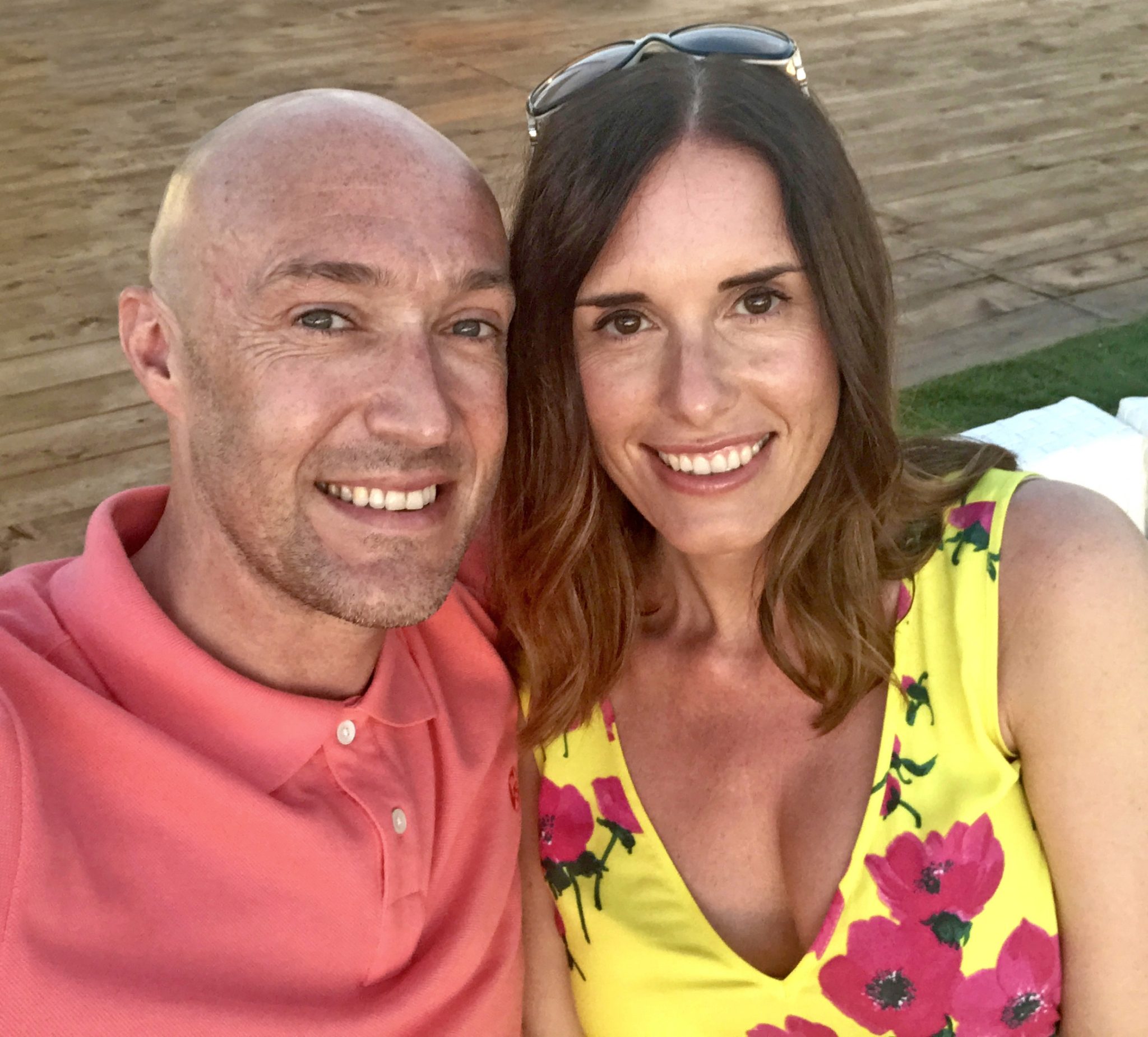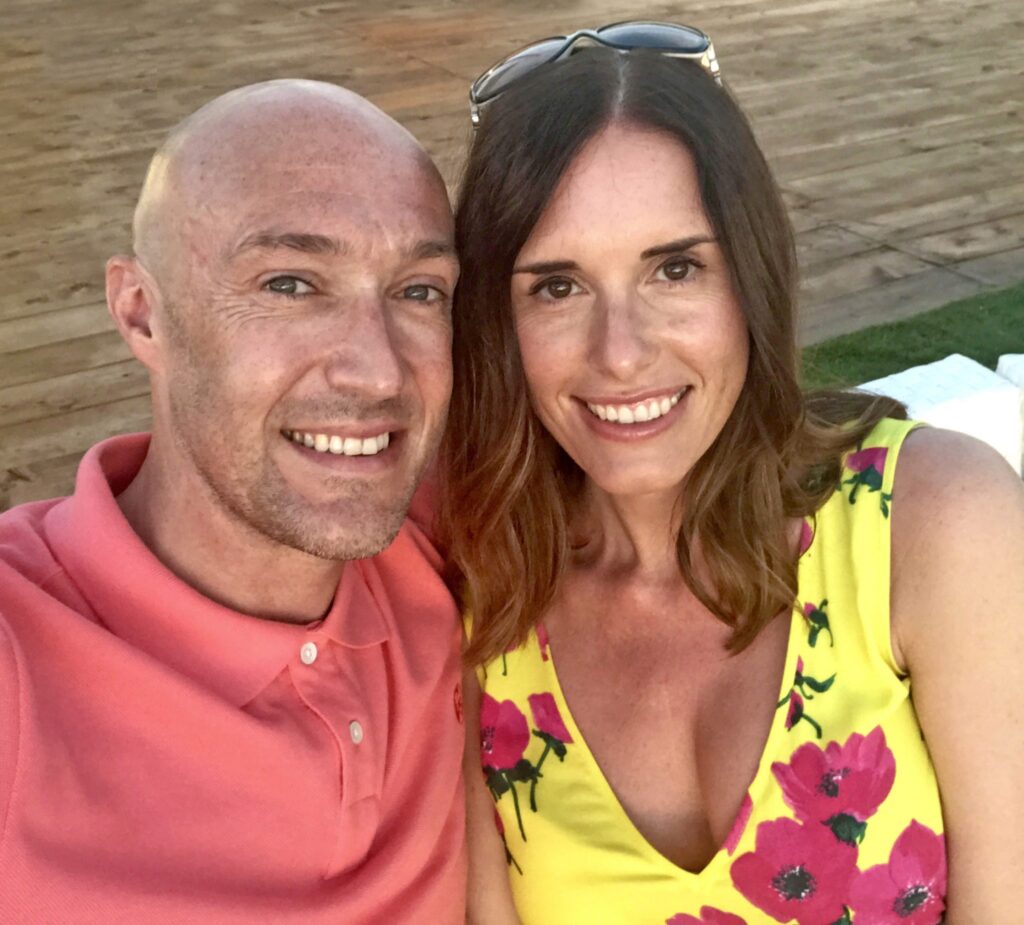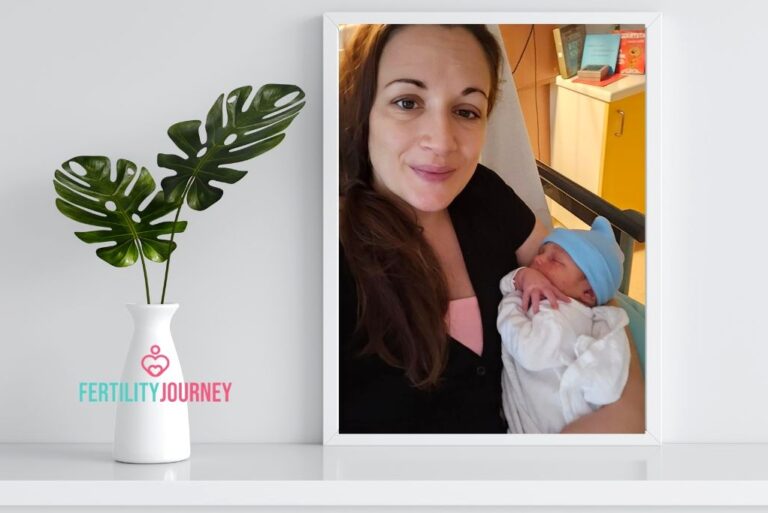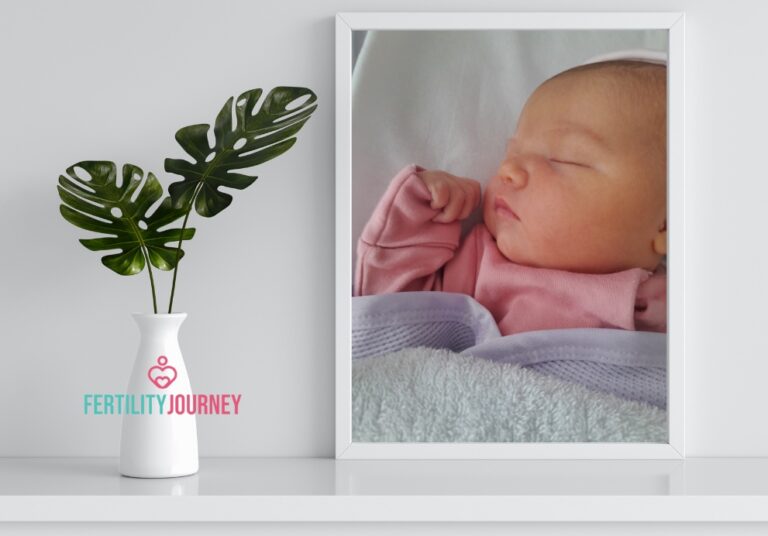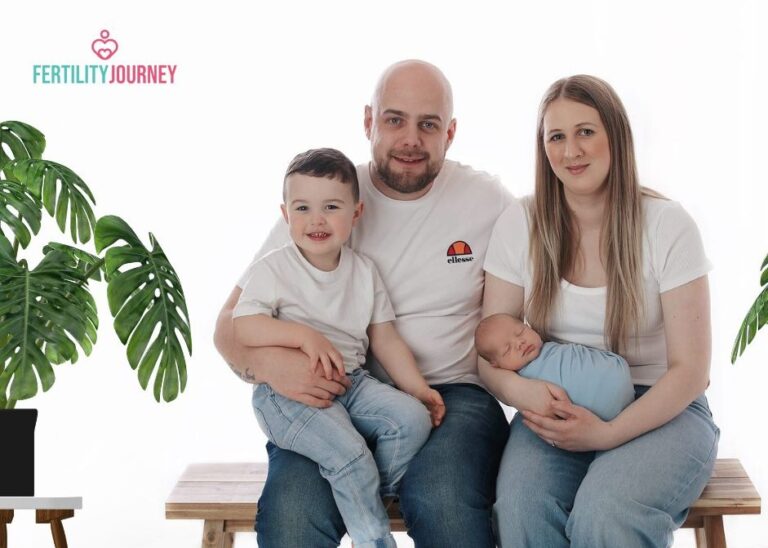After seven fertility treatments and five devastating losses, Laura and Ian were running out of hope—and courage. What had started as naive optimism—”we’ll have one, maybe two goes at IVF and have a baby in our arms”—had transformed into an exhausting cycle of fear, grief, and financial strain. Yet somewhere beneath the pain, a flicker of hope remained. When IVF Spain selected them as 2018 runners-up for the Fertility Journey project, that flicker became something more.
This is the story of a couple who refused to give up, and a clinic that finally gave them a reason not to.
When hope turns to fear: five losses and seven treatments
Laura and Ian’s fertility journey had been long, brutal, and unrelenting. By the time they found IVF Spain, they had endured seven treatments, five pregnancy losses, and an ectopic pregnancy that left deep emotional and physical scars.
The emotional toll of repeated treatment had fundamentally changed how they approached each new cycle. As Laura described it:
“I think the longer you have treatment the more difficult it becomes. When you begin there’s a naivety along the lines of, ‘we’ll have one, maybe two goes at IVF and have a baby in our arms’. After 7 treatments the feelings completely change. You feel terrified that it won’t work, and you’ll never become parents. You’re scared it will work and you’ll lose the baby again. You’re scared of physically going through the treatment as you’ve had so much.”
The fear wasn’t just emotional. Each test, each treatment, each result carried the weight of everything they had already been through. “Each test and treatment creates fear—fear that it will hurt, be traumatizing, that it will give you more bad news,” Laura shared. Their mental health had suffered enormously, and the financial burden of years of expensive treatment had pushed them to their limits.
A complex medical picture
At 41, Laura’s fertility challenges were deeply complex. Beyond the emotional devastation of five losses, she faced significant medical obstacles—an ectopic pregnancy and recurrent miscarriage that had left the medical team searching for answers.
Previous IVF clinics had put Laura and Ian through numerous treatments and expensive fertility add-ons without ever conducting the specialized tests that might explain why implantation kept failing and pregnancies kept ending. The couple had invested heavily in blood tests and medications, yet had never received the kind of in-depth analysis their case truly required.
Immunologically, Laura’s case presented a particularly challenging puzzle. IVF Spain’s fertility specialist Dr. Isabel Herrera suspected that the couple’s immunogenetic compatibility had never been properly investigated—and that this oversight might hold the key to their repeated failures.
IVF Spain: A different kind of clinic
When Laura and Ian first engaged with IVF Spain, they were immediately struck by how differently the clinic approached their case. For the first time, they felt their history was being truly understood and investigated.
“We have undergone tests that we’ve never had before—ERA, NK biopsy and KIR. We have paid for lots of very expensive blood tests and drugs but never received this kind of analysis. So, we feel as though the treatment is now specifically for us,” Laura explained.
This personalized approach created something the couple had almost forgotten how to feel: positivity. “This creates more positivity, a feeling of being cared for and that maybe, just maybe, we’ll get to be parents,” Laura said.
Anonymous IVF with egg donation
Given Laura’s recurrent miscarriage history and ectopic pregnancy, IVF Spain’s medical team recommended egg donation treatment to maximize their chances of success. This was a significant emotional step for the couple, but one they ultimately embraced.
The anonymous nature of egg donation in Spain—protected under Spanish reproductive law—brought unexpected relief. “For us, it’s taken some of the pressure away. I can’t imagine how difficult it would be to choose a donor ourselves,” Laura admitted.
Laura’s reflections on the anonymous donor were deeply moving: “It’s also really odd to not know who this person is. What they look like and personality. What’s motivating them to help us. One of the things I’ve been really consumed with is the gratitude you have for this person. I’d like to thank them but can’t. Anonymity means we have a chance to become parents. Without it there’d be a shortage of donors like there is in the UK.”
IVF Spain’s KIR-HLA-C genotyping test added another layer of precision to the donor matching process, ensuring not just physical similarity but immunological compatibility—something that had never been investigated in previous treatments.
Groundbreaking immunological support
The specialized testing at IVF Spain revealed crucial information that previous clinics had entirely overlooked. Dr. Herrera explained the findings:
“We carried out the KIR-HLA-C genotyping and concluded that the patient had a KIR AA. With Laura’s KIR AA variant, the sperm would have to be HLA C1 C1 and the HLA of the donor should be as well HLA C1 C1. As her husband has a HLA C1 C2 variant, we will treat her with a medication that reduces her immune-genetic reaction. We believe that not paying attention to this issue in the past is what may have caused the implantation to fail.”
This groundbreaking insight—that Laura’s immunological profile required specific donor matching and targeted medication—shed new light on years of unexplained failures. Dr. Herrera also recommended a single embryo transfer, as double transfers would increase the immunogenetic reaction in patients with Laura’s profile, further reducing the chances of a successful pregnancy.
Waiting with hope: preparing for the transfer
With their embryo transfer scheduled, Laura and Ian were doing their best to enjoy the summer like any other couple—a conscious effort to reclaim some normalcy after years of treatment-focused living.
Laura’s approach to the waiting period was practical and self-aware: “I’ve tried to just carry on as normal. Remain healthy, take pre-conception vitamins. Reach out and get support through the Donor Conception Network in the UK and connect with other people going down the donor egg route via online forums. It’s quite isolating and scary so it’s important to reach out and not feel so alone.”
She was also working on managing the stress that had accumulated over years of treatment. “I’m trying to relax a little—not so easy with work but it’s a work in progress. I need to get that bit sorted now treatment is on the horizon.”
A renewed sense of possibility
For Laura and Ian, IVF Spain represented something they hadn’t experienced in a very long time: genuine, well-founded hope. The combination of groundbreaking immunological testing, a carefully matched egg donor, and a medical team that had truly studied their case gave them a sense that this time was different.
“This opportunity with IVF Spain has given us hope that we thought we’d lost,” Laura said simply.
After seven treatments, five losses, and years of financial and emotional strain, that hope—carefully rebuilt through specialized care and personalized treatment—was perhaps the most significant result IVF Spain had delivered so far.
Reaching out and refusing to give up
Laura’s advice to others navigating the painful, isolating world of recurrent pregnancy loss and repeated IVF failure was both practical and heartfelt. She urged couples to seek support through organizations like the Donor Conception Network and connect with others going through egg donation via online forums.
“It’s quite isolating and scary so it’s important to reach out and not feel so alone,” she said.
For Laura, taking care of her mental and physical wellbeing in the lead-up to treatment was equally important — staying healthy, taking pre-conception vitamins, and finding small ways to manage the stress that years of treatment had accumulated.
A story that might feel familiar
Kathryn and Richard’s Story: A Rare Chromosome Disorder and the Clinic That Helped Them Through It
Claire and David’s Seven-Year Journey — and the Clinic That Finally Made the Difference
IVF Spain Alicante: Laura and Ian’s Journey Through Immune Challenges to New Hope
Updated: 23.02.2026
